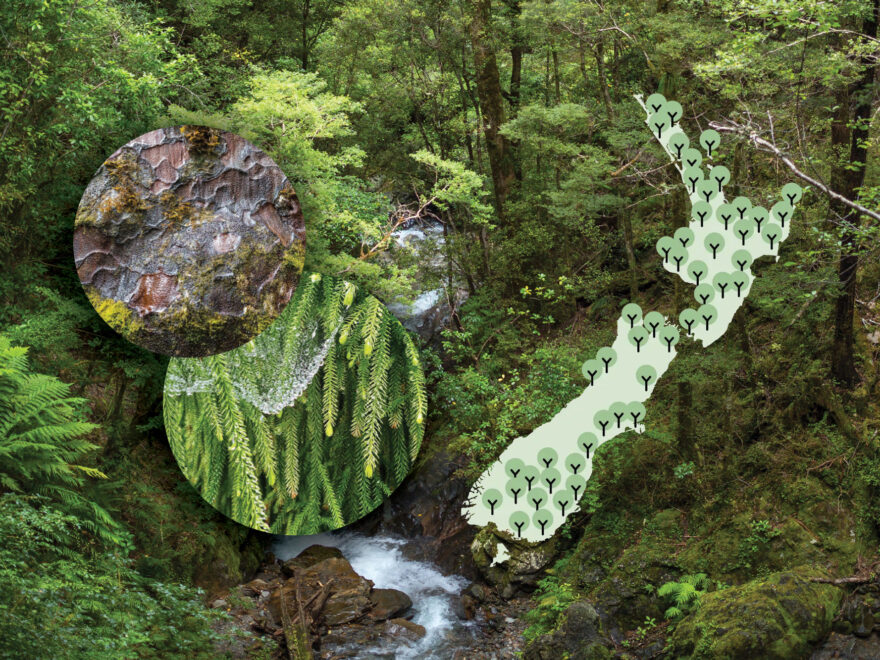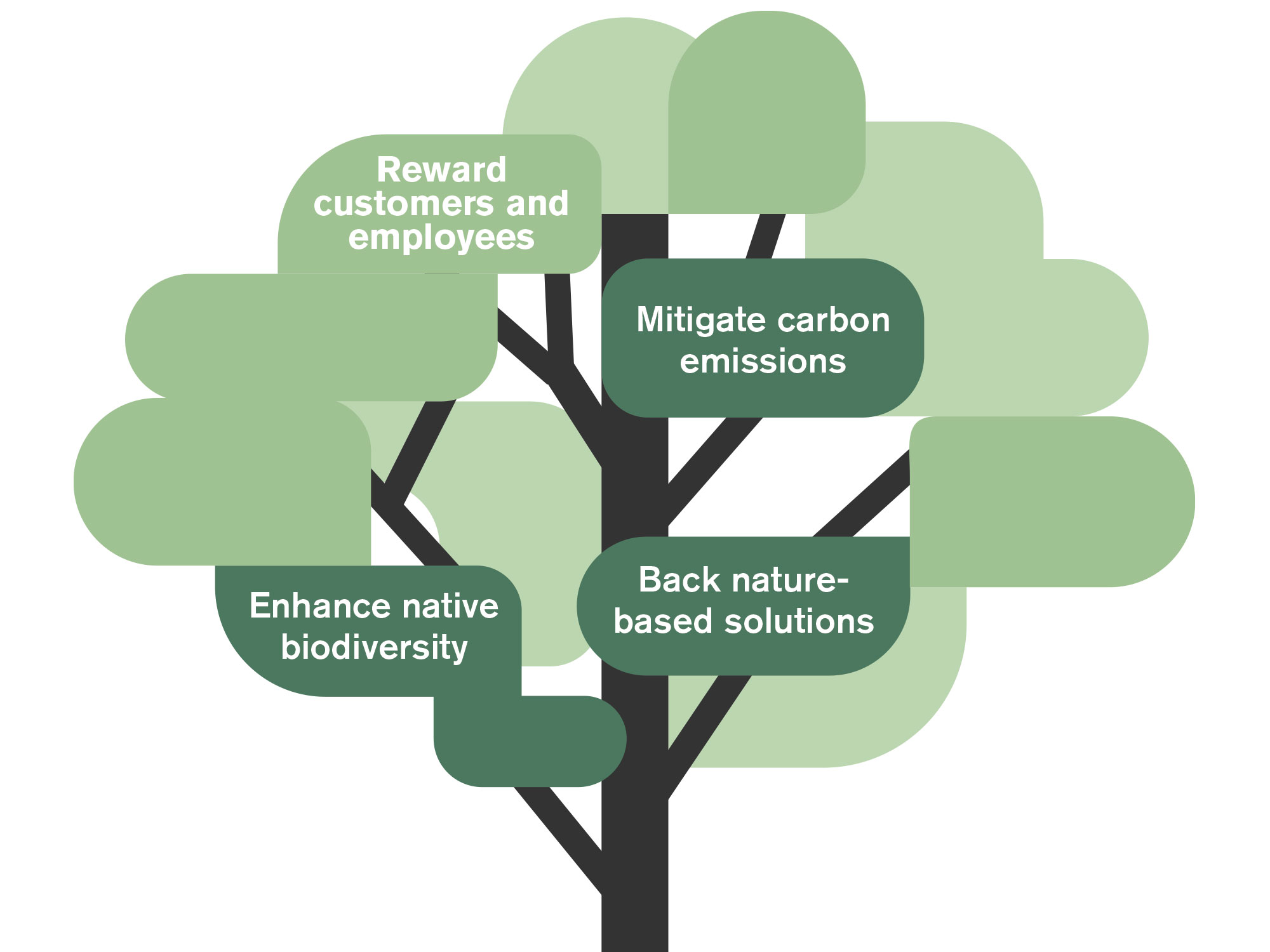Powerbase is thrilled to announce a new partnership with Trees That Count, an environmental charity which offers a forward-thinking solution for individuals and businesses to support restoration projects in New Zealand for positive nature impact.
Consumers demand real sustainability action: it’s time for businesses to listen
How green is your business?
Gone are the days of “sustainable practices” being limited to paper straws and extra LED lights. Today, reduction is not enough. Our audiences are asking businesses to make long term positive environmental impacts. And businesses are listening.
Business and sustainability in 2025
As businesses, we depend on nature. From supply chains to shipments – it’s a fact that’s easy to ignore (until it’s not).
The health of the natural world directly impacts the sustainability of business. And in recent years, there’s been a noticeable evolution in how New Zealand businesses are tackling sustainability.
Today, sustainability means partnering with nature – rather than just minimising damage. We can’t afford not to. Across the board, leading businesses are proving that actions mean more than words.
1. The rise of the mindful consumer
From Apple’s “carbon-neutral by 2030” to Nike’s “Move to Zero” — sustainable business campaigns are everywhere. And it’s no mystery why.
In Aotearoa New Zealand, recent surveys highlight a growing trend among
consumers — they are prioritising environmental sustainability in purchasing decisions.
Research by the Sustainable Business Council found that, in 2019, 87% of New Zealanders express concern about sustainability.
And these concerns influence the way consumers buy. With nearly 51% of participants stating that the sustainability practices of large retailers influence their purchasing choices.
Driven by cost-of-living pressures and climate concerns, today’s consumers aren’t scared to deliberate and research. In fact, according to 2023 research by Consumer NZ, almost 90% of New Zealanders have adopted more mindful shopping habits.
2. The rise of the mindful employee
It’s not just consumers. As the global climate and biodiversity crises intensify, employees are increasingly demanding transparency and action from their employers.
The 2024 Totaljobs Hiring Trends Index, found that today’s employees “want and expect” greater environmental initiatives from employers in all fields.
The study, which surveyed 3,000 workers, found that 30 percent of workers would change jobs if they discovered their employer was acting unsustainably. And most workers (93%) said it’s important that their employer acts sustainably.
In a competitive market, a sustainability framework can help businesses gain an edge when recruiting and retaining talent.
Businesses that cultivate an environmentally conscious culture can benefit from higher employee morale, stronger collaboration, and innovation. And when happier employees are proven to be more productive, environmental action is a no brainer.
3. The rise of mindful restoration
All talk, no action? Your consumers are clued-on. Research from Business in the Community found that 72% of people want businesses they buy from to take climate action. Yet, almost two-thirds (62%) do not trust businesses to do what they promise.
To your audience, it’s never been more important to put your money where your mouth is. In 2024, the Sustainable Business Network has pointed to the growing trends of ‘consumer questioning’, ‘action against greenwashing’ and ‘searching for authenticity’ across sectors.
Now, businesses are ensuring they are not just reducing harm – but are bolstering nature. Globally, there has been a clear evolution from a solely “reduce, reuse, recycle” model of old. For decades we’ve known that mitigating greenhouse gas emissions is crucial for combating climate change. But it’s just one aspect of positive environmental impact. From bolstering ecosystem services to supporting disaster recovery, businesses are now thinking beyond carbon.
Businesses are recognising the value of biodiversity – and taking steps towards its restoration. Today, leading global brands such as Unilever, IKEA, McCain foods and Nestlé, have become members of the coalition ‘One Planet Business for Biodiversity’. Among other biodiversity objectives, they’re dedicated to restoring riverside reserves and creating wildlife corridors. It makes sense. Healthy ecosystems are integral to their success.
Partnering with nature
Adopting sustainable goals can help your business drive significant positive environmental impact.
While you may have begun to measure and understand your business’ environmental impact, it can be overwhelming to know where to begin tackling it. But you don’t have to freeze while you assess your impact on nature.




